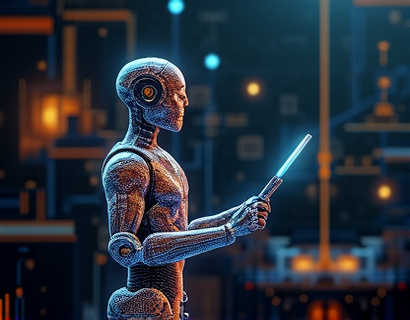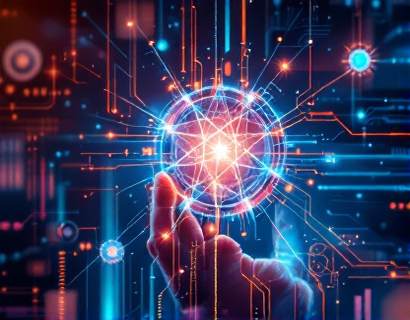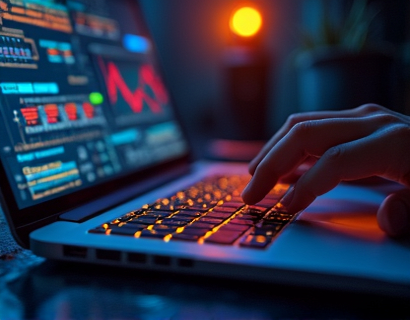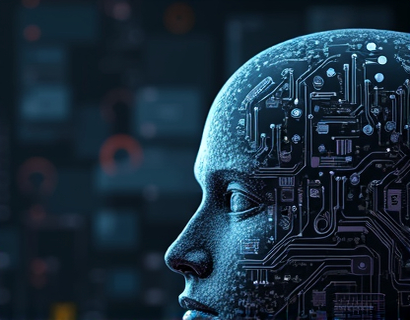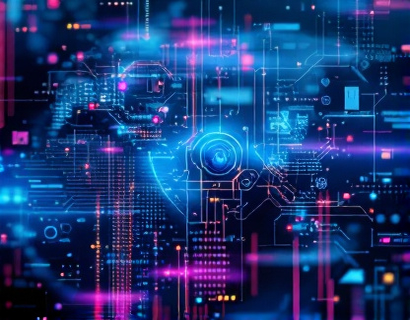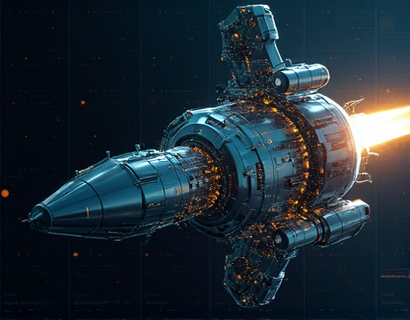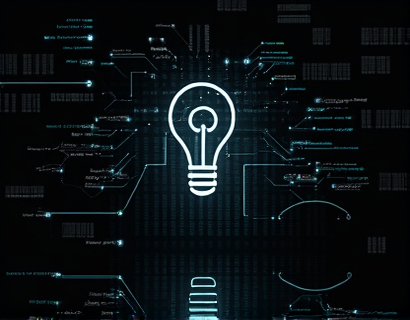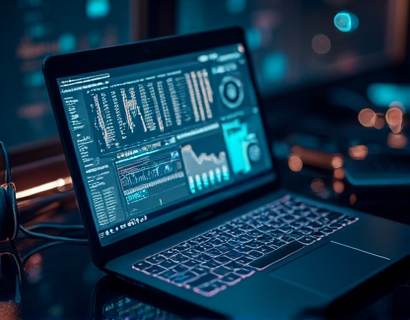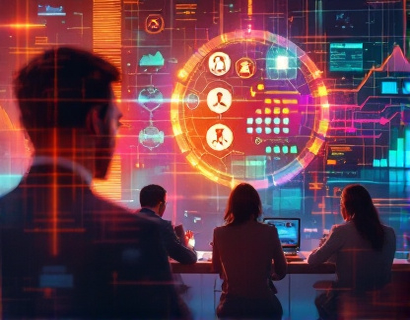AI and Crypto Synergy: Revolutionizing Digital Ecosystems for Tech-Savvy Innovators
The intersection of Artificial Intelligence (AI) and cryptocurrency is giving rise to a new era of digital ecosystems, one that promises unparalleled innovation and efficiency. For tech-savvy innovators, this synergy represents a golden opportunity to redefine how they interact with crypto applications and services. This article explores the advanced technologies and strategic approaches that are reshaping the crypto landscape, offering insights into how these developments can elevate digital experiences and unlock new potentials in the crypto space.
The fusion of AI and cryptocurrency is not merely a technological trend but a fundamental shift in how digital assets are created, managed, and utilized. AI brings to the table its prowess in data analysis, predictive modeling, and automation, while cryptocurrency offers a decentralized, secure, and transparent medium for transactions. Together, they create a powerful combination that can transform various sectors, from finance and supply chain management to healthcare and beyond.
Enhanced Security Through AI
One of the most significant benefits of integrating AI into cryptocurrency systems is the enhancement of security measures. Traditional cryptographic methods, while robust, are not immune to evolving cyber threats. AI algorithms can analyze vast amounts of data in real-time, identifying patterns and anomalies that may indicate a security breach. This proactive approach allows for quicker response times and more effective mitigation strategies.
For instance, machine learning models can be trained to detect fraudulent transactions by learning from historical data. These models continuously adapt and improve, making it increasingly difficult for malicious actors to exploit vulnerabilities. Moreover, AI-driven security solutions can automate the process of updating security protocols, ensuring that systems remain protected against the latest threats without manual intervention.
Smart Contracts and AI Optimization
Smart contracts, self-executing contracts with the terms directly written into code, are a cornerstone of blockchain technology. However, their efficiency and functionality can be significantly enhanced through AI. AI can optimize smart contract code, reducing complexity and potential errors. By analyzing vast codebases, AI can identify redundant or inefficient parts and suggest improvements.
Furthermore, AI can facilitate the creation of more sophisticated smart contracts that can adapt to changing conditions. For example, AI algorithms can monitor external data sources and adjust contract parameters in real-time, ensuring that agreements remain relevant and enforceable. This level of adaptability is particularly valuable in complex transactions where static rules may not suffice.
Personalized User Experiences
The integration of AI into cryptocurrency platforms enables the delivery of personalized user experiences. By leveraging user data and behavior patterns, AI can tailor recommendations, notifications, and interface elements to individual preferences. This personalization not only enhances user satisfaction but also increases engagement and retention.
For instance, a crypto exchange can use AI to analyze a user's trading history and market behavior to suggest optimal trading strategies or alert them to potential investment opportunities. Similarly, a wallet application can provide customized security settings and alerts based on the user's activity and risk tolerance. This level of personalization is crucial in a market where user experience can be a decisive factor.
Decentralized AI Models
Another exciting development is the emergence of decentralized AI models in the crypto space. Traditional AI relies on centralized data repositories and computing resources, which can be a bottleneck and a security risk. Decentralized AI, on the other hand, distributes data and computation across a network of nodes, enhancing both privacy and resilience.
In this model, AI models are trained collaboratively by multiple participants, each contributing a portion of the data and computational power. This approach not only reduces the risk of data breaches but also allows for more diverse and robust model training. Decentralized AI can be particularly beneficial for privacy-sensitive applications, such as identity verification and secure messaging, where data confidentiality is paramount.
Predictive Analytics for Market Insights
AI-driven predictive analytics is revolutionizing how traders and investors approach the crypto market. By analyzing historical price data, market trends, and even social media sentiment, AI can generate insights that inform trading decisions. These predictions can range from short-term price movements to long-term market trends, providing users with a competitive edge.
For example, AI algorithms can identify patterns in market volatility and correlate them with external factors such as regulatory news or technological advancements. This holistic view enables traders to make more informed decisions, reducing the reliance on intuition and increasing the potential for profitable trades. Additionally, AI can automate trading processes, executing trades based on predefined criteria and algorithms, further enhancing efficiency.
Supply Chain Transparency and Traceability
Beyond financial applications, the synergy of AI and cryptocurrency is transforming supply chain management. By leveraging blockchain for transparency and AI for data analysis, companies can achieve unprecedented levels of traceability and efficiency. Each step in the supply chain, from production to delivery, can be recorded on a blockchain, ensuring that all transactions are immutable and verifiable.
AI can process this vast amount of data to identify bottlenecks, optimize logistics, and ensure compliance with regulations. For instance, AI can predict maintenance needs for transportation vehicles based on real-time data, reducing downtime and costs. Moreover, consumers can use blockchain-based apps to trace the origin and journey of products, enhancing trust and sustainability in the supply chain.
Accessibility and Financial Inclusion
The combination of AI and cryptocurrency has the potential to democratize access to financial services, particularly in underserved regions. Traditional banking systems often exclude large portions of the population due to high costs and stringent requirements. Cryptocurrency, powered by AI-enhanced platforms, can provide a more accessible and inclusive alternative.
AI-driven KYC (Know Your Customer) processes can streamline the onboarding of new users, reducing the time and cost associated with traditional verification methods. Additionally, AI can help in designing financial products that cater to the specific needs of different communities, such as microloans for small businesses or savings plans for low-income households. This targeted approach can foster financial inclusion and empower individuals to improve their economic conditions.
Challenges and Considerations
While the potential benefits are significant, the integration of AI and cryptocurrency also comes with challenges. One of the primary concerns is the regulatory landscape. Governments and regulatory bodies are still grappling with how to oversee these innovative technologies, leading to a patchwork of regulations that can hinder adoption.
Another challenge is the technical complexity involved in developing and maintaining AI-driven crypto systems. Developers need a deep understanding of both AI and blockchain technologies, which can be a barrier to entry. Moreover, the ethical implications of AI, such as bias in algorithms and data privacy, must be carefully addressed to ensure that these technologies are used responsibly.
Future Prospects
Looking ahead, the synergy between AI and cryptocurrency is poised to drive further innovation and transformation. As AI algorithms become more sophisticated and blockchain technology matures, we can expect to see even more seamless and integrated applications. The development of interoperable blockchain networks, enhanced by AI, could facilitate seamless interactions between different crypto ecosystems, fostering a more connected and efficient digital world.
Moreover, the rise of decentralized finance (DeFi) platforms, powered by AI, is set to redefine traditional financial services. These platforms can offer a wide range of financial products, from lending and borrowing to insurance and investment, all accessible through decentralized applications. AI can optimize these services, making them more user-friendly and cost-effective.
In conclusion, the fusion of AI and cryptocurrency is not just a technological advancement but a paradigm shift in how we think about digital ecosystems. For tech-savvy innovators, embracing this synergy offers a wealth of opportunities to create more secure, efficient, and inclusive digital experiences. As the landscape continues to evolve, staying informed and adaptable will be key to thriving in this exciting new era.





